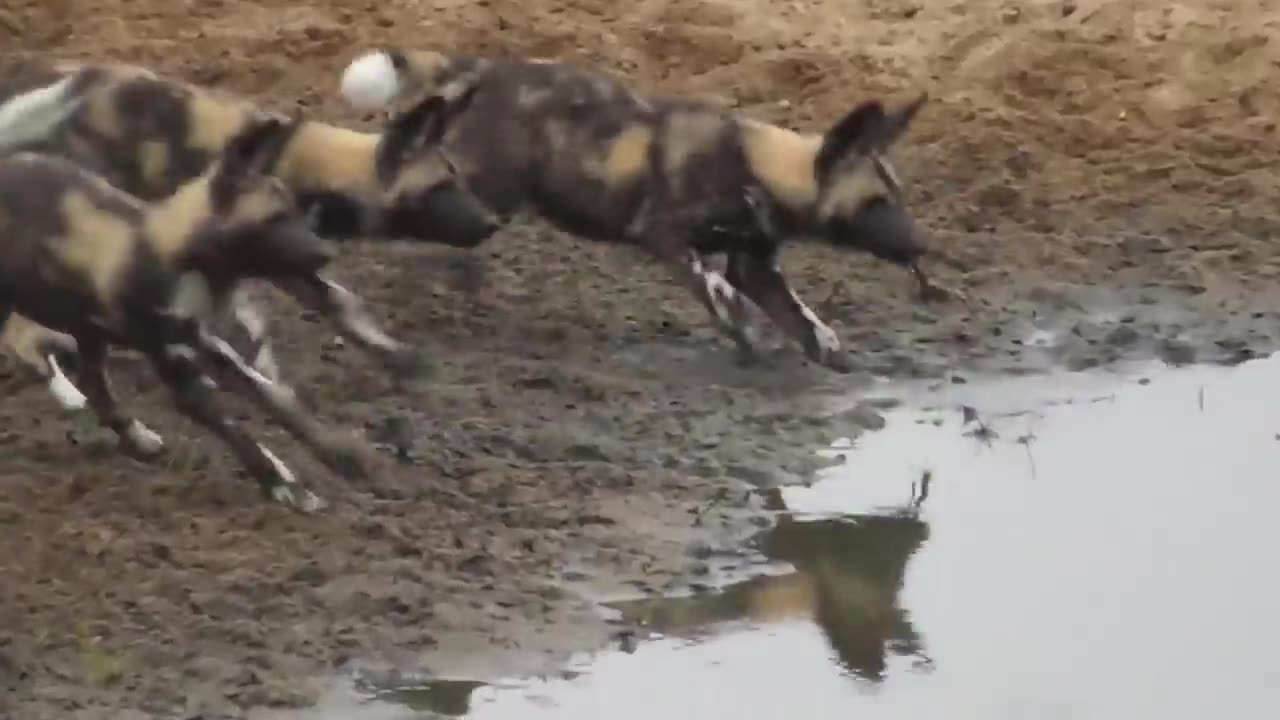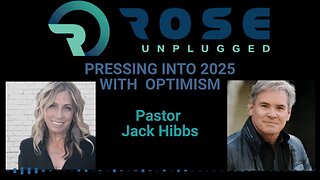Premium Only Content

Animals Seeing Themselves For The First Time
hen our collie, Buckaroo, was four months old, he began barking at his reflection in our glass patio door every evening, doing his best to alert us to this unknown, bold little pup outside. Of course, the reflected dog didn’t back away, so Buck lunged at him and scratched the door jamb – actions that did get our attention. We would pull him away, laughing, and tell him he was wrong – a dog wasn’t on our deck. Buck studied our faces with a perplexed expression. Anyone could see the dog was still there. Why didn’t we chase it away? Sometimes, we opened the door to show him he was mistaken. Of course, as soon as we closed it, the strange dog reappeared. The reflected dog also had the irritating habit of mirroring all of Buck’s actions. In other situations with new dogs, Buck would have made a series of welcoming gestures, perhaps wagging his tail, rolling his eyes and making deep play bows. We never saw him make a single attempt to befriend this ‘Now I’m here; now I’m not’ canine. He tried only to make him go away.
At some point, when he was a few months older, Buck ceased being interested in his reflection. Undoubtedly, he still saw the dog, but finally accepted that it wasn’t going to leave. Apparently, he decided that it wasn’t going to try to come into the house either, so he didn’t need to bark and scratch. Perhaps Buck had concluded it was simply better to ignore this apparition. That’s our best guess because, of course, we don’t actually know what he thought about his mirror-twin – we can make only hunches based on his behaviour.
Many animals behave in a similar manner the first time they see themselves in a mirror. Some cat owners have videoed their pets leaping away in wide-eyed alarm, even doing back flips, after spotting their reflections. Monkeys, chimpanzees and many species of birds all initially interpret their mirror image as a stranger, and respond by attacking or threatening it. Even human children under the age of two don’t initially recognise their reflections; like most other species, they react as if seeing another child, one who seems bent on playing a novel form of hide-and-seek. But, at least for most children raised in Western societies, something changes at about age two, and they begin to understand that they are looking at themselves. (It helps that their parents likely often hold them in front of mirrors, playfully asking: ‘Who is that? … That’s you!’) At this age, neuropsychologists say that the structure and function of children’s prefrontal cortex also begins to mature, and they begin to perceive the ‘self’ as a separate being. Two-year-old toddlers also begin to use personal pronouns, play self-consciously, and smile when they succeed at solving challenging tasks – all signs that they are becoming self-aware.
Although scientists don’t yet know where self-awareness resides in the brain or how firing neurons give rise to an ‘I’, they do agree that it is essential to our mental complexity and to becoming empathetic. It’s the mental feeling of being an ‘I’, a separate individual with a running narrative of all you’re doing, have done and will do in the future. Self-awareness also enables humans to model mentally the minds of others, a skill that’s key to a range of social strategies from sympathy to deception.
Self-awareness is not, however, the same as being conscious – which is commonly defined as being aware of one’s body and surrounding environment, a mental trait many animals share with us. Indeed in 2012, a prominent international group of neuroscientists, ethologists and psychologists issued what’s been called ‘The Cambridge Declaration on Consciousness’. It asserted that
Convergent evidence indicates that nonhuman animals have the neuroanatomical, neurochemical and neurophysiological substrates of conscious states along with the capacity to exhibit intentional behaviours. Consequently, the weight of evidence indicates that humans are not unique in possessing the neurological substrates that generate consciousness. Nonhuman animals, including all mammals and birds, and many other creatures, including octopuses, also possess these neurological substrates.
But being conscious of one’s body does not mean that an animal also has a capacity for introspection – a key part of being self-aware. While consciousness is being aware of one’s body, self-awareness takes the sensation one step further – you recognise that you are aware of your awareness.
Surely other animals possess this sensation and are socially adept? Many seem to go about their lives with a sense of purpose; it’s difficult to imagine they don’t have a mental image of themselves as they engage in life. Isn’t there ‘anyone inside’?, fretted the late Vincent Dethier, a psychologist at the University of Pennsylvania who spent 18 years attempting (and failing) to show that blowflies could remember. He knew that most people regarded the tiny flies only as ‘little machines in a deep sleep’, but his years of observing their ‘mute performances’ and ‘staring eyes’ through his microscope made him think the flies might have some sense of themselves – a feeling most of us have about our pet dogs and cats, too.
-
 10:22
10:22
Dr Disrespect
3 days agoDR DISRESPECT - 2024 RECAP
60.6K78 -
 18:03
18:03
Neil McCoy-Ward
7 hours agoThe US 'INCIDENTS' Are just The Tip Of The Iceberg...
19.5K7 -
 1:33:19
1:33:19
Tactical Advisor
7 hours agoThe Vault Room Podcast 007 | Terrorist Attacks Update
51.8K3 -
 18:08
18:08
ROSE UNPLUGGED
1 day agoAn Air of Optimism for 2025: Can You Feel It?
12.9K4 -
 1:57:06
1:57:06
The Charlie Kirk Show
4 hours agoThe 2025 Speaker Election + DEI FBI + Britain's Grooming Gangs | Gaetz, Gilliam, Marshall | 1.3.2025
109K86 -
 42:43
42:43
Grant Stinchfield
6 hours ago $4.53 earnedThe Left's Will Evil Plot to Prevent Trump from Taking Office Exposed!
22.9K14 -
 52:32
52:32
The Dan Bongino Show
6 hours agoProducer's Picks: Bongino's Best Segments - 01/03/25
147K485 -
 56:49
56:49
VSiNLive
5 hours agoA Numbers Game with Gill Alexander | Hour 1
37.7K3 -
 1:42:46
1:42:46
Film Threat
19 hours ago2025 MOVIES TO LOOK FORWARD TO + JANUARY'S BEST FILMS | Film Threat Livecast
29.5K4 -
 2:34:38
2:34:38
The Shannon Joy Show
6 hours ago🔥🔥Friday Freestyle LIVE With Shannon Joy! Ask Me Anything On The Open Live Chat!🔥🔥
22.9K6